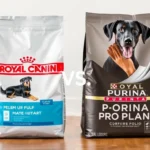
Introduction
Proper nutrition is vital for maintaining the health and well-being of our canine companions. Just as we are conscious of our dietary choices, understanding what foods are safe and beneficial for dogs is equally essential. This article focuses specifically on the question: can dogs eat lobster?
Overview of Dog Dietary Needs
Dogs require a balanced diet that consists of essential nutrients to thrive. These include:
- Proteins: Crucial for growth, muscle development, and overall health.
- Fats: Provide energy and support cell function.
- Carbohydrates: Offer a source of quick energy and aid in digestive health.
- Vitamins: Essential for various bodily functions, including immune response and metabolism.
- Minerals: Important for bone health, nerve function, and overall bodily functions.
A balanced diet ensures that dogs receive all necessary nutrients for optimal health, making it essential to evaluate any new food items carefully.
Understanding Canine Digestion
How Dogs Digest Food
To address the question of whether dogs can eat lobster, it’s essential to understand how dogs digest food. Dogs have a simpler digestive system compared to humans. They possess a shorter gastrointestinal tract, which allows for quicker digestion of proteins and fats. Unlike humans, dogs do not have a well-developed ability to digest carbohydrates, making their diets primarily protein-based.
Nutritional Absorption
The canine digestive system is designed to process and absorb nutrients efficiently. Dogs produce strong stomach acids that help break down protein-rich foods like meat, including lobster. However, they may struggle with certain types of food that are high in carbohydrates or heavily processed. This makes it critical to focus on digestible food types that align with their natural dietary needs.
Lobster as a Food Item
Nutritional Profile of Lobster
Lobster is a seafood delicacy that boasts an impressive nutritional profile. Here’s a breakdown of the nutrients found in lobster:
- Proteins: Lobster is rich in high-quality protein, essential for muscle development and repair.
- Omega-3 Fatty Acids: These healthy fats support heart health and contribute to a shiny coat.
- Vitamins: Lobster contains B vitamins, particularly B12, which is vital for energy production and neurological function.
- Minerals: It is a good source of zinc, copper, and selenium, important for immune health and overall vitality.
Comparison with Other Proteins
When comparing lobster to other common protein sources like chicken, beef, and fish, lobster holds its own due to its unique nutrient composition. While all these proteins provide essential amino acids, lobster stands out due to its lower fat content and higher levels of omega-3 fatty acids. This makes it a more heart-healthy option compared to traditional meats.
Can Dogs Eat Lobster?
Safety Considerations
Before introducing any new food into your dog’s diet, it’s crucial to consider safety. Can dogs eat lobster? The answer is yes, but with precautions.
- Allergies and Sensitivities: Some dogs may have allergies to shellfish, including lobster. Watch for symptoms like itching, swelling, or digestive upset.
- Contamination and Toxins: Shellfish can sometimes carry harmful bacteria or toxins, so it’s vital to ensure that the lobster is fresh and properly cooked. Avoid feeding dogs raw lobster, as it can pose health risks.
Preparation and Serving Tips
If you decide to feed your dog lobster, preparation is key. Here are some best practices:
- Cook the Lobster: Always cook lobster thoroughly without any seasoning, butter, or sauces. Plain boiled or steamed lobster is the safest option.
- Remove the Shell: Ensure that all shells are removed before serving, as they can pose a choking hazard.
- Serving Size: The recommended serving size depends on your dog’s size. A small piece for a small dog and a slightly larger portion for bigger breeds is advisable. Always introduce new foods gradually.
Benefits of Feeding Lobster to Dogs
Nutritional Benefits
Feeding lobster to dogs can provide several nutritional benefits:
- High-Quality Protein: Lobster is an excellent source of protein, crucial for muscle health and overall growth. It provides essential amino acids that help maintain strong muscles and healthy tissues.
- Omega-3 Fatty Acids: These fatty acids are beneficial for skin and coat health, reducing inflammation, and supporting heart health.
Health Benefits
In addition to nutritional advantages, lobster may offer several health benefits:
- Joint Health: Omega-3 fatty acids can help reduce inflammation, potentially benefiting dogs with arthritis or joint issues.
- Increased Energy Levels: The high-quality protein content can contribute to better energy levels, making your dog more active and playful.
Risks and Considerations
Potential Health Risks
While there are benefits to feeding lobster, there are also potential health risks to keep in mind:
- Allergic Reactions: Be vigilant for any signs of allergic reactions, which may include vomiting, diarrhea, or excessive scratching.
- Choking Hazard: Lobster shells can be sharp and pose a choking risk, so it’s crucial to remove all shells before serving.
- Sodium Content: Lobster can be high in sodium, which is not suitable for dogs with certain health issues, like heart disease. Always consult your vet if you are unsure.
When to Avoid Feeding Lobster
There are specific scenarios when it’s best to avoid feeding your dog lobster:
- Health Conditions: Dogs with shellfish allergies or certain medical conditions, such as pancreatitis, should avoid lobster altogether.
- Age and Size Considerations: Very young puppies or small breeds may not tolerate lobster well due to their delicate digestive systems.
Alternatives to Lobster
Other Seafood Options for Dogs
If you’re considering seafood for your dog but are unsure about lobster, there are several safe alternatives:
- Salmon: Rich in omega-3 fatty acids, salmon is another excellent source of protein that can enhance skin and coat health.
- Sardines: These small fish are packed with nutrients and generally safe for dogs, providing healthy fats and protein.
Balanced Diet Suggestions
Incorporating seafood into your dog’s diet can be beneficial, but it’s essential to maintain a balanced diet. Here are some suggestions:
- Variety is Key: Rotate different protein sources, including poultry, red meat, and fish, to ensure a well-rounded diet.
- Consult Your Vet: Before introducing new foods, it’s always a good idea to consult with your veterinarian to determine the best dietary plan for your dog.
Conclusion
In summary, can dogs eat lobster? Yes, but with careful consideration of safety and preparation. Lobster can provide high-quality protein and omega-3 fatty acids, contributing to your dog’s overall health. However, it’s important to be mindful of potential allergies, choking hazards, and the sodium content.
Always consult with your veterinarian before introducing new foods into your dog’s diet, and remember that moderation and balance are crucial for optimal health. By focusing on a well-rounded diet, you can help ensure your furry friend lives a vibrant, healthy life.









